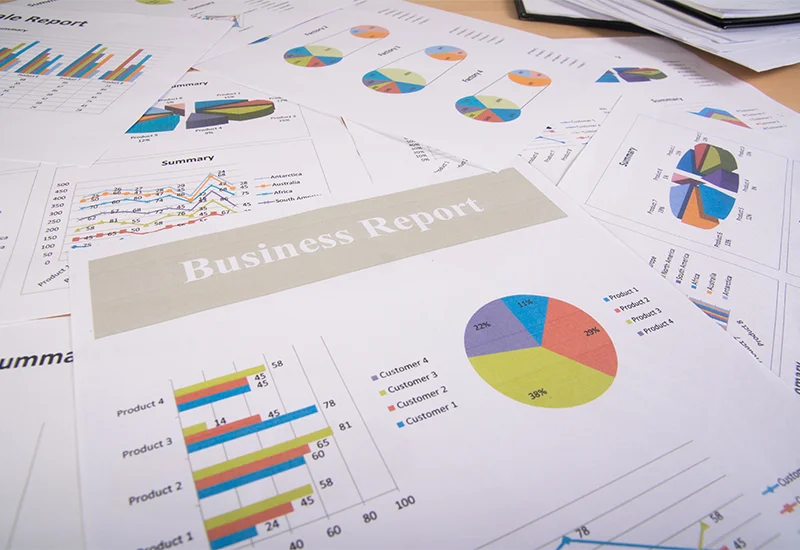Just as you wouldn’t choose a builder without checking their credentials, selecting the right accountant for your small business is vital. A good accountant can save you time and money, while also providing important financial guidance. However, opting for the wrong one can lead to unnecessary stress and complications. This guide will help you navigate the process of finding an accountant who suits your specific needs, ensuring you make an informed decision that supports your business’s growth and success.
Key Takeaways:
- Identify your specific business needs and ensure the accountant has relevant experience and expertise in your industry.
- Consider the accountant’s communication style and availability, as strong relationships and clarity are vital for effective working partnerships.
- Evaluate fees and services offered, ensuring transparency to avoid any unexpected costs while making sure you receive value for your investment.
Understanding the Role of an Accountant
A skilled accountant is an invaluable asset for your small business, serving multiple roles that extend beyond mere number crunching. They provide guidance with financial reporting, tax compliance, and strategic planning, ultimately ensuring that your business remains financially healthy. The importance of choosing the right accountant cannot be overstated, as they can help you navigate complex regulations and enhance your decision-making processes.
Types of Accountants
After considering the various responsibilities of accountants, you should be aware that they often specialise in different areas within the accounting field. Each type has its own set of skills and services that can benefit your specific needs.
| Certified Public Accountant (CPA) | Focuses on tax preparation and financial audits. |
| Management Accountant | Provides financial insights for internal decision-making. |
| Tax Accountant | Specialises in tax law and helping you comply with regulations. |
| Forensic Accountant | Investigates financial discrepancies and fraud. |
| Financial Analyst | Provides analysis for investment decisions and business strategies. |
- Certified Public Accountant
- Management Accountant
- Tax Accountant
- Forensic Accountant
- Financial Analyst
Assume that you are clear about the kind of accounting services you need; this will help you find the most suitable professional for your business.
Services Offered by Accountants
Before selecting an accountant, it’s crucial to understand the wide array of services they offer. Accountants can assist with bookkeeping, preparing financial statements, conducting audits, and filing tax returns. They also provide consultancy services to help you plan for future financial goals, thus playing a vital role in shaping your business’s financial strategy.
Role of an accountant extends far beyond just maintaining your financial records. They can assist with budgeting, forecasting, and cash flow management, enabling you to make informed decisions that can significantly impact your business’s growth. Additionally, having a reliable accountant can mitigate risks associated with tax liabilities or financial mismanagement, allowing you to focus on other core aspects of your business.
1. Verify qualifications and relevant industry experience of accountants.
2. Ensure they understand your business size and financial needs.
3. Check their familiarity with tax regulations and compliance rules.
4. Discuss fees upfront to avoid unexpected accounting costs.
5. Look for proactive advice, not just basic bookkeeping services.
6. Communicate clearly about expectations and preferred reporting formats.

Key Qualities to Look For
Assuming you are on the hunt for an accountant who can effectively support your small business, it is necessary to recognise the key qualities that will ensure your partnership is beneficial. You need an accountant who not only understands your financial needs but is also adaptable to the ever-changing market dynamics. Look for someone who demonstrates professionalism and reliability in their approach, as these traits will serve as the foundation for a productive working relationship.
Experience and Credentials
Experience is a significant factor when selecting an accountant. You want to ensure they possess a solid background working with small businesses similar to yours, as this will provide them with the necessary insights to navigate your unique challenges. An accountant’s credentials, such as their qualifications and memberships in professional bodies, can further enhance your confidence in their expertise. An accountant with a proven track record of delivering results can be an invaluable asset, allowing you to focus on your business while trusting that your finances are in capable hands.
Communication Skills
Across the spectrum of qualities you should evaluate, communication skills stand out as exceptionally important. An accountant needs to communicate financial information clearly, breaking down complex concepts into terms you can easily understand. This will enable you to make well-informed decisions regarding your business’s finances. Regular updates and a willingness to answer your questions promptly can foster a collaborative atmosphere, ensuring your financial strategies align with your business goals.
A good accountant should be more than just a numbers person; they should act as your financial partner, providing guidance and advice when needed. Find someone who is patient and willing to listen to your concerns, as this will help in building a solid rapport. The ability to convey financial data effectively can significantly enhance your understanding and confidence in financial matters, ultimately empowering you to drive your business forward with clarity and purpose.

Assessing Your Business Needs
To choose the right accountant, it is crucial to assess your specific business needs. This involves evaluating the current financial situation of your business, as well as identifying any upcoming challenges or opportunities. You should consider factors such as the complexity of your financial activities, the extent of your bookkeeping requirements, and whether you need assistance with tax planning or compliance. By understanding these factors, you can make informed decisions that will lead to improved financial management and decision-making for your business.
Identifying Financial Goals
Beside identifying the financial activities that will occur in your business, you must set clear financial goals. These goals will serve as a roadmap for both you and your accountant. Consider whether you are looking to increase profitability, manage cash flow more effectively, or prepare for expansion. Each of these objectives may require a different approach to accounting and can guide you in selecting an accountant who has the right expertise to help you achieve your desired outcomes.
Choosing Between Full-Time and Part-Time
Behind the decision to hire either a full-time or part-time accountant lies the understanding of your business’s workload and budget. Full-time accountants may offer more comprehensive support, allowing you to have a dedicated professional who understands every facet of your financial landscape. On the other hand, part-time accountants can provide the flexibility and cost-effectiveness that smaller businesses might need, particularly if you do not require constant oversight.
Identifying your typical financial needs will enable you to determine the best fit for your business. If you expect frequent transactions, a full-time accountant could ensure consistent monitoring and immediate assistance. However, if your financial activities are seasonal or sporadic, a part-time accountant might suffice, proving to be a more economical solution. This choice will ultimately depend on your specific requirements and the level of support you feel is crucial as your business grows.
Questions to Ask During the Interview
Once again, conducting a thorough interview with potential accountants is vital in ensuring that you find the perfect match for your small business. You should prepare a series of targeted questions that will help you assess their competency, experience, and how they can cater to your unique requirements. Inquire about their approach to tax planning, the software they use for bookkeeping, and whether they stay updated on the latest regulatory changes that could impact your business. Additionally, ask about their availability for consultations and how often they will communicate with you regarding your financial status.
To further gauge their suitability, don’t hesitate to ask for client references. Speaking with other small business owners who have worked with the accountant can provide valuable insights into their working style and reliability. Furthermore, consider asking about their specific experience in your industry. This knowledge can be beneficial in understanding the nuances and challenges you may face.
Experience with Small Businesses
Along your search for the right accountant, their experience with small businesses should be a key area of focus. An accountant who has a proven track record of working with similar-sized businesses will better understand the distinct challenges you face, such as cash flow management and tax obligations. Furthermore, they should be able to provide tailored advice that aligns with your specific industry, helping you to navigate financial issues more confidently.
Inquire about the types of services they have provided to other small business clients. For example, have they assisted with start-up advice, or prepared financial statements and budgets for small enterprises? This hands-on experience can be invaluable, as it ensures that your accountant will be equipped to handle your particular needs effectively.
Fee Structure and Payment Terms
With hiring an accountant, understanding the fee structure and payment terms is imperative. Different accountants may have varied methods of charging, whether it be hourly, fixed fees, or a percentage of your revenue. You need to clarify these details upfront to avoid any unexpected costs later. Furthermore, inquire about whether the accountant offers any package deals that could provide comprehensive services at a more affordable rate.
Even if an accountant appears to have the right credentials and experience, failing to grasp their fee structure can lead to financial strain and misunderstandings down the road. It’s vital to ask about potential additional charges, such as for administrative tasks or unexpected consultations. Establishing a clear agreement from the outset will help you manage your budget effectively while ensuring that you receive the necessary support for your financial needs.
The Importance of Trust and Compatibility
Keep in mind that choosing the right accountant extends beyond mere qualifications and expertise; it hinges significantly on trust and compatibility. Having an accountant you feel comfortable with can make a substantial difference in the success of your business. When you are confident in your accountant’s abilities, you are more likely to share sensitive information openly, which can lead to better advice and positive outcomes. A strong professional relationship can be further enhanced through clear communication and understanding each other’s expectations. To learn more about effectively selecting an accountant, you might find valuable insights in How to pick CPA for small business : r/tax.
Building a Professional Relationship
The foundation of a successful partnership with your accountant is built on mutual respect and understanding. You should take the time to discuss your business goals, values, and any specific challenges you may face with your finances. A good accountant will actively listen and provide tailored advice that aligns with your vision. Developing this professional rapport not only fosters a better working environment but also enhances the support you receive during critical times, such as audits or tax season.
Evaluating Long-Term Potential
Relationship dynamics in business accounting may shift over time, making it imperative to consider your accountant’s long-term potential. As your business evolves, your financial needs will likely grow in complexity. You should assess whether your chosen accountant is adaptable and can offer comprehensive support as your business enters new phases or markets. A solid long-term partnership can provide continuity, allowing you to strategically plan for the future without constantly seeking new financial advice.
With a reliable accountant by your side, you can enjoy the benefits of continued guidance through various stages of your business journey. Their experience and familiarity with your operations will equip you to navigate changes in the market with greater confidence. However, you should remain vigilant; it is important to regularly evaluate whether your accountant can still meet your growing needs. If not, seeking a more capable partner may be necessary to ensure your continued success.
Conclusion
The decision to choose the right accountant for your small business is one that can significantly influence your financial success and operational efficiency. You should assess not only the qualifications and experience of potential accountants but also their understanding of your industry and ability to communicate effectively with you. By establishing a strong partnership with an accountant who aligns with your values and objectives, you can ensure that your financial matters are handled proficiently, allowing you to focus on growing your business.
Furthermore, as your business evolves, it is necessary to re-evaluate your accountant’s performance and whether their services continue to meet your needs. The relationship you cultivate with your accountant can provide valuable insights and guidance, helping you navigate complex financial landscapes and comply with ever-changing regulations. By taking the time to choose wisely, you position your business for better financial health and sustainable growth.
FAQ
Q: What qualifications should I look for in an accountant?
A: When choosing an accountant, it’s important to check their qualifications. Look for professional designations such as ACA, ACCA, or CIMA, which indicate that the accountant has completed rigorous training and has maintained professional standards. Additionally, consider their experience in handling accounts specific to your industry, as specialised knowledge can provide added value.
Q: How can an accountant help me save money?
A: An accountant can identify tax deductions and credits that you may not be aware of, leading to significant savings. They can also offer advice on financial management, helping you optimise expenses and improve cash flow. Furthermore, a good accountant will provide strategic insights into your financials, enabling you to make informed decisions that promote cost-efficiency.
Q: Should I choose a local accountant or one who works remotely?
A: The choice between a local accountant and a remote one largely depends on your preferences and business needs. A local accountant can provide face-to-face meetings which some may find beneficial for building a strong relationship. However, a remote accountant may offer more flexibility and potentially lower fees. Consider what works best for your communication style and business requirements before making a decision.
Q: How do I evaluate the fees associated with hiring an accountant?
A: Assessing an accountant’s fees can be approached by comparing their charges against the services offered. Some accountants charge a fixed fee, while others operate on an hourly rate. It’s necessary to understand what services are included in the fee structure and whether there are any additional costs. Review multiple quotes and seek transparency regarding pricing to ensure you find a fair arrangement that meets your budget.
Q: What role does an accountant play in business planning?
A: An accountant is instrumental in business planning by providing financial forecasts, budgeting assistance, and insights into profit margins and cash flow. They can help you analyse financial data to set realistic goals and identify potential areas for growth. Their expertise can guide you in creating a well-structured business plan that reflects your financial situation and outlines a path forward.













